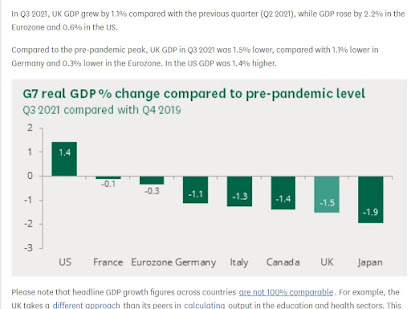How to spot a Brexit lie
There are numerous ways of telling lies. Saying something untrue is the obvious way. Another technique is the implicit lie which, when it is repeated frequently, becomes accepted. An example of an implied lie is the Brexit proposition that money contributed to the EU is squandered uselessly. This is often stated in a roundabout way, focussing on marginal details. Brexiters have been careful to focus on the issue of control of the funds flowing into the EU rather than the more challenging question of the value to the UK. The implication is that British taxpayers get no value from their EU contributions and this money can be diverted to the UK no cost, but the slow grinding process of withdrawal from the EU is revealing a very different truth.
In fact the money contributed by EU member states funds a wide range of important shared services. After withdrawal Britain will have the doubtful privilege of replicating these services and paying the full cost, without the benefits of collaboration among 28 states representing over 500 million people. The Nuclear Safeguards Bill now making its way through parliament, is an early example. The bill deals with a large, potentially dangerous, gap in nuclear regulation created by the UK’s departure from Euratom, the EU body charged with regulating nuclear safety.The use and movement of nuclear materials is covered by international treaties designed to prevent accidents, illicit use and terrorism. There is no question that Britain will have to replicate the work of Euratom if radioactive materials are to be used in research, defence, medicine and power generation in the UK after Brexit.
There is much discussion about the precise form of the new regime but one thing is certain, this will be an expensive exercise in recreating a regulatory wheel which has been working successfully for years. Britain currently has full access to a range of support, research and administrative services through its membership of Euratom. This will stop on Brexit day and UK taxpayers will have to fund a replacement organisation, entirely at their own expense. UK taxpayers may ask what is the point of this exercise in futile duplication, particularly since Euratom sets rules and procedures on behalf of all of Europe and Britain will have to follow those rules, or lose access to vital research and supplies.
British taxpayers waiting for the promised cash bonanza for the NHS will learn there will be little left after Britain sets up a new breed of national regulators in areas as diverse as chemicals, food, fisheries, motor vehicles, medicines, intellectual property, consumer electronics, academic accreditation, financial regulation, immigration and many more. This will create employment for highly paid experts in London and the university cities but it is hard to see any benefit for the citizens of Oldham, Stoke-on-Brexit or Sunderland.
The EU is a remarkably efficient administrative engine delivering a wide range of specialist services for member states and their citizens. Once Britain leaves the EU it will pay the full cost of copying EU regulations and policing them with no say in how those regulations are made, and that’s the truth!
In fact the money contributed by EU member states funds a wide range of important shared services. After withdrawal Britain will have the doubtful privilege of replicating these services and paying the full cost, without the benefits of collaboration among 28 states representing over 500 million people. The Nuclear Safeguards Bill now making its way through parliament, is an early example. The bill deals with a large, potentially dangerous, gap in nuclear regulation created by the UK’s departure from Euratom, the EU body charged with regulating nuclear safety.The use and movement of nuclear materials is covered by international treaties designed to prevent accidents, illicit use and terrorism. There is no question that Britain will have to replicate the work of Euratom if radioactive materials are to be used in research, defence, medicine and power generation in the UK after Brexit.
There is much discussion about the precise form of the new regime but one thing is certain, this will be an expensive exercise in recreating a regulatory wheel which has been working successfully for years. Britain currently has full access to a range of support, research and administrative services through its membership of Euratom. This will stop on Brexit day and UK taxpayers will have to fund a replacement organisation, entirely at their own expense. UK taxpayers may ask what is the point of this exercise in futile duplication, particularly since Euratom sets rules and procedures on behalf of all of Europe and Britain will have to follow those rules, or lose access to vital research and supplies.
British taxpayers waiting for the promised cash bonanza for the NHS will learn there will be little left after Britain sets up a new breed of national regulators in areas as diverse as chemicals, food, fisheries, motor vehicles, medicines, intellectual property, consumer electronics, academic accreditation, financial regulation, immigration and many more. This will create employment for highly paid experts in London and the university cities but it is hard to see any benefit for the citizens of Oldham, Stoke-on-Brexit or Sunderland.
The EU is a remarkably efficient administrative engine delivering a wide range of specialist services for member states and their citizens. Once Britain leaves the EU it will pay the full cost of copying EU regulations and policing them with no say in how those regulations are made, and that’s the truth!


Comments
Post a Comment